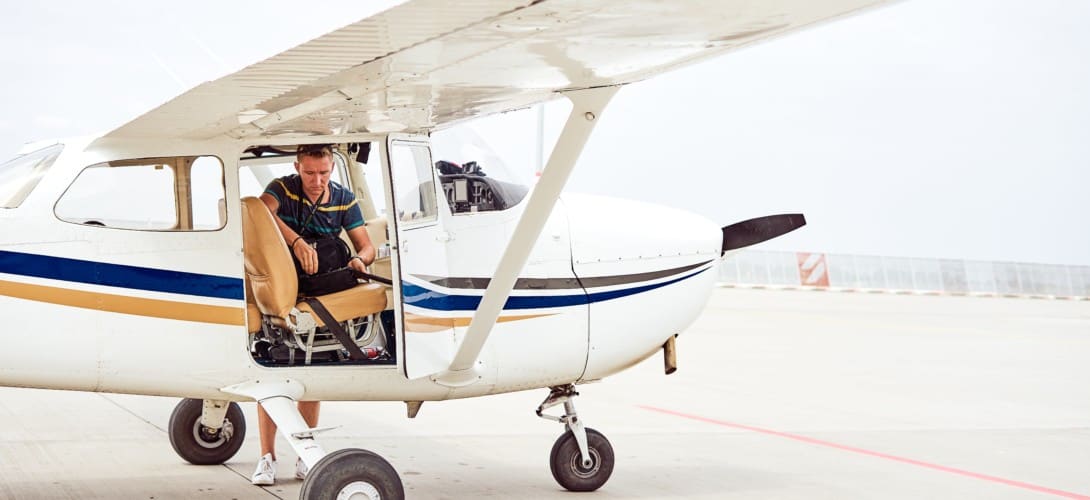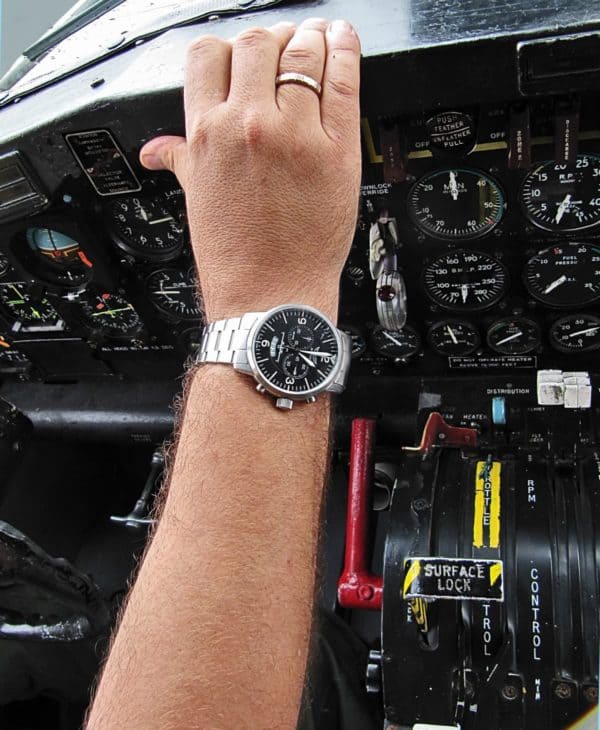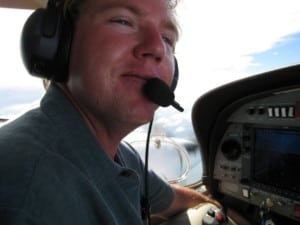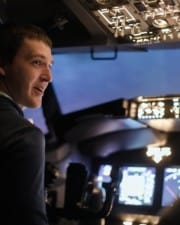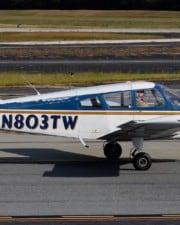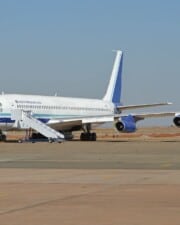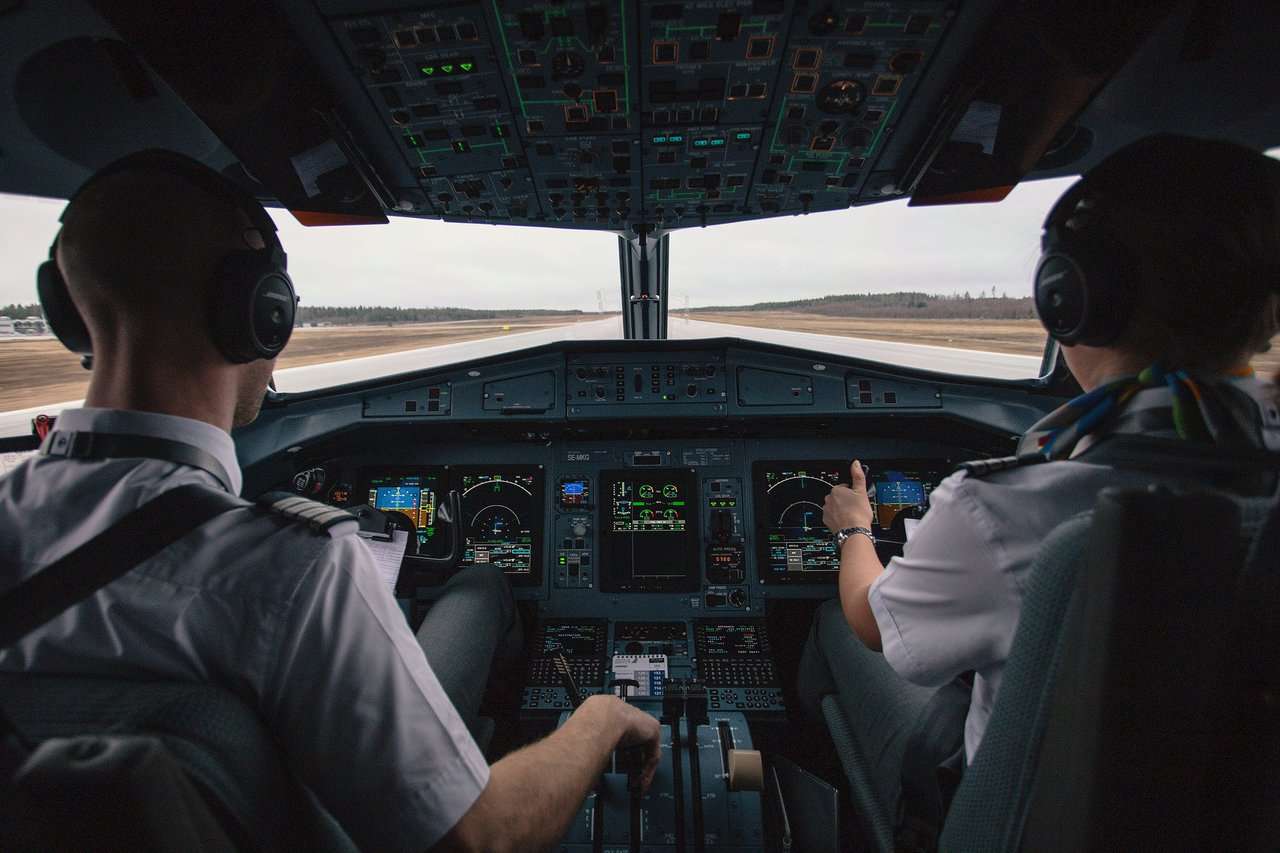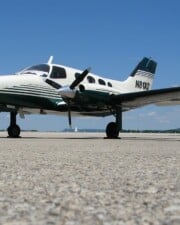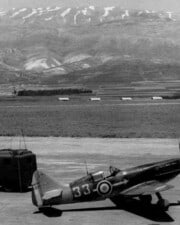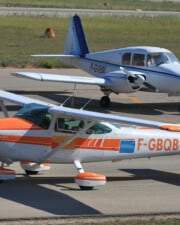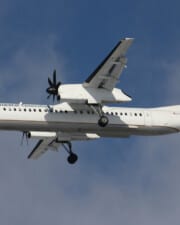Have you ever wondered if you have what it takes to be a pilot? There’s a lot to learn and a lot of skills to master. But if you think you have these skills, you can learn everything else you need to with ease.
Table of Contents
When you think of the skills a pilot should have, you probably think about things specific to flying the plane. They need to take off, land, or handle emergencies if they come up. These are obvious “hard skills” that every pilot needs to know.
But like any other job, there are also many “soft skills” that pilots should have. These may or may not be addressed in pilot training, and they are things most people would consider talents or pilot personality traits.
No one calls these skills the “qualifications” to become a pilot. It’s entirely possible to learn these things, and many pilots learn these skills along the way. But the ones who don’t have to are called “naturals,” and they’re the ones who get their licenses quickly and find the greatest success.
1. A “Command Presence”
No pilot starts in the left seat of a Boeing or Airbus. The truth is, pilots start their careers doing something more challenging than what the professionals do—they have to do everything themselves.
A pilot’s license gives its holder the privilege to act as the “Pilot in Command” (PIC) of a flight. That means that they’re in charge, like the captain of a ship. And that means that before any flight instructor allows a student to fly a plane solo, they’ll have to demonstrate something that flight instructors call a “command presence.”
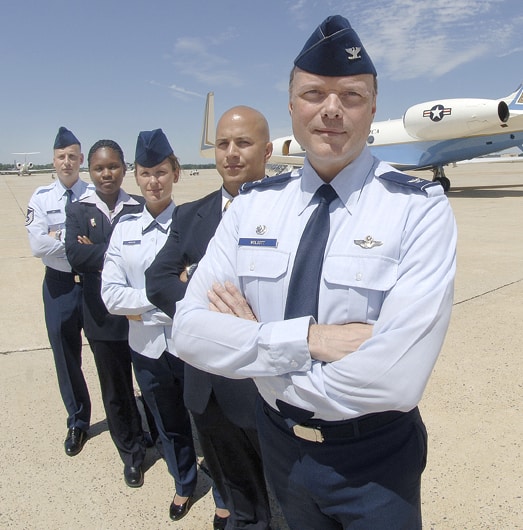
You probably won’t find this term in many textbooks because it’s usually distilled down into the many other soft skills that make it up. Many talk about pilot leadership skills or what kind of personality a pilot should have.
But a pilot needs to have them all down. Being the PIC of a plane is about leadership and technical skill at the same time. The technical tasks, or hard skills, are pretty easy to learn. The soft skills that make up leadership and a command presence, on the other hand, are often overlooked.
Here are just a few of the things that would be included in having a command presence in the cockpit.
- Ability to solve problems quickly, analytically, and accurately while using a logical framework of decision-making criteria
- Being constantly aware of your surroundings, and of changes in those surroundings, and being able to adapt to those changes
- Having confidence in your abilities and decisively applying your skills when necessary
- Never panicking, remaining calm under pressure, and being able to manage stress well
2. People Skills
If you want a career as a professional pilot, you need to have good people skills. Most flying jobs involve working in two-person cockpits. What do airlines look for in pilots? Most will hire the people that they want to work with.
“Do I want to spend all day in a tiny airplane cockpit with this person?” That’s the question that every pilot asks themselves when they meet another pilot. When you go for a pilot job interview, the chief pilot will be asking themselves just that question. And they’ll probably answer it before they ever fly with you.
There are many other things you need to have to land the job. You’ve got to meet the minimum flight times, and you’ve got to have all the right qualifications. But hiring managers know that they can train you to do pretty much anything in the plane, but they can’t train you to be likable.

Being a pilot doesn’t require “teamwork” in the traditional cubicle-and-tie workplace way. But it does require being friendly and working with other coworkers, sometimes in tiny spaces and stressful conditions.
3. The Desire to Know How Things Work
A great deal of pilot training involves learning the inner workings of the plane and its engine. If you like to take things apart and learn what makes them tick, you’re in luck. But if you’re the sort of person who turns the key of their car every morning and only knows that some magic happens, you’re going to be in for a long trek.
Everyone has some subject that they aren’t great at, be it math or science or grammar. Becoming a pilot involves learning skills and knowledge from many different disciplines. But pilots don’t have the luxury of saying, “I’m not good at ___.” They have to learn it anyway while recognizing that it may not be their forte.
The most successful people at this are those that are naturally curious. They might not grasp all of the intricacies of aerodynamics or how reciprocating engines work, but they are interested enough to understand the significant parts.
Many aviation enthusiasts can identify the difference between a Boeing 737 and an Airbus A320 from miles away. This is hardly an airline pilot skill of much importance. But having this skill, or something like it, shows a passion for aviation. And it’s an indicator of a “pilot personality”—someone who has taken the time to learn something just because they’re interested in it. There are no limits to where you can go with a passion for something and a desire to learn about it.
4. Can Visualize Spatial Concepts
There are a few things in aviation that require visualizing a situation in your mind’s eye. They aren’t things that you can physically see. Sometimes, you’re hearing a situation on the radio and trying to imagine how it might affect you.
Uncontrolled airports are a good example. At airports without control towers, pilots call to one another and announce their positions and intentions. All other pilots who hear the call have to imagine where they are, where they’re going to be, where the other guy is, and where the other guy will be. From all of that, they need to figure out if there’s going to be a problem or not.
Part of that situation involves playing an air traffic controller and thinking in three dimensions. Most people don’t have to do that very often, but it’s an essential part of flying. A flight needs to be planned not only along a route but also by profile. When will you level off from your climb, and when must you begin a descent?
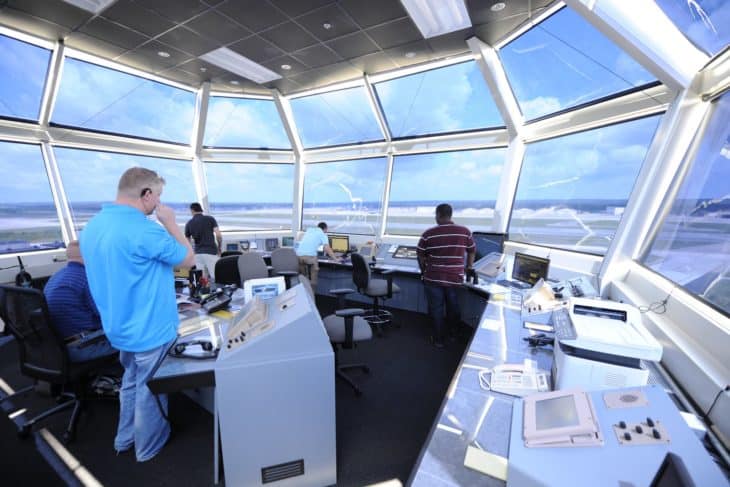
Finally, pilots need to be able to visualize what their instruments are telling them. Some instruments are abstract in their representations of reality. For example, navigation equipment may only display a course line. When flying in instrument conditions, pilots are continually looking at many sources of information and visualizing their plane’s position and attitude.
5. Communicate Clearly
When most people think of pilots communicating, they think of radios and talking to air traffic control. That’s undoubtedly an essential form of communication, but it’s one that can be easily trained. Anyone can learn how to talk to ATC, but it’s easiest if you can take very complicated things and make them sound simple.
It’s far more than just learning some jargon. Pilots need to communicate in many ways, both during flight training and throughout their careers. They communicate with mechanics and ground support teams on the ground, and they communicate with controllers and other pilots in the air.
6. Time Management Skills
Time management is a skill that everyone exercises all the time, but some are better at it than others. Student pilots can display good time management by preparing for their flight lessons or studying in advance. But for flying professionals, time management is an essential skill that helps make every flight go smoothly.
All flights are made up of exciting and boring bits. The boring bit is sitting in line, number eight for takeoff. The exciting bit is getting to take off. The trick that the good pilot knows is that they aren’t going to have time to do everything they need to do for the exciting bits to happen smoothly, so they have to spend those boring bits getting ready for them.
Being a pilot means always asking yourself, “What are the next there things I need to do?” It’s a constant and unending question once you start asking it. But by knowing the answer, you make sure you know what’s coming and what you should be ready for.
The pilot can’t get to the runway and then start the takeoff checklist– the tower will be mad. Likewise, they can’t arrive at their destination to start fumbling around looking for the landing approach charts. They’ve got to do those things in advance, during the boring bits, by exercising excellent time management skills.
7. Being Honest With Yourself
Finally, every pilot needs a little bit of humility and the ability to be honest with themselves. Every landing is not their best. Something can be learned from every experience.
When learning to fly, being honest with yourself means analyzing how a lesson went and recognizing your weaknesses. It might mean that you need to study more or practice more. But this skill doesn’t end when you get your license.
Self-reflection may be the one skill that sets a great pilot apart from all the rest. They can review what they did, learn from it on their own, and make a plan of how they’re going to do it better next time. Even when things went well, there’s always something that can be improved on.
The same can be said about the whole experience of being a pilot. Pilots should want to keep learning, to pick up new skills, and to keep getting better. It can come in the form of getting new licenses or ratings or just keeping up to date on the latest trends and planes. Good pilots never stop learning.
Related Posts
